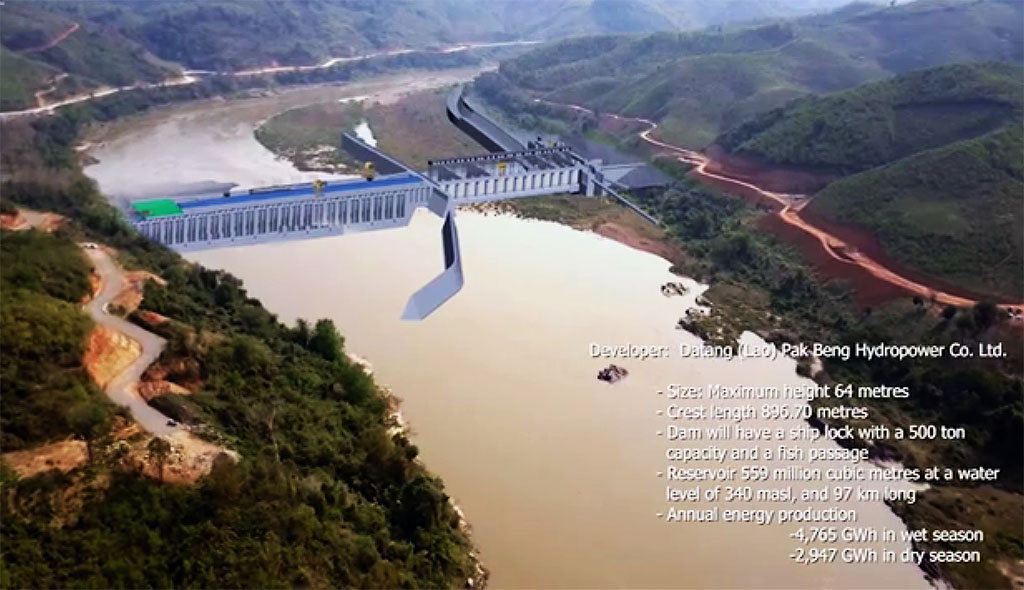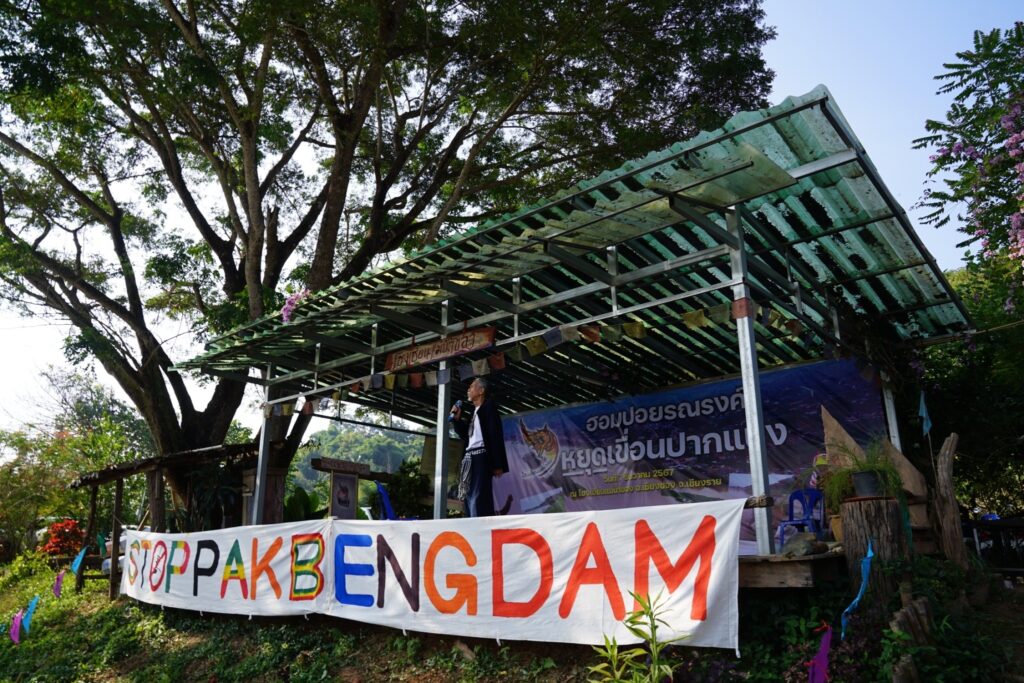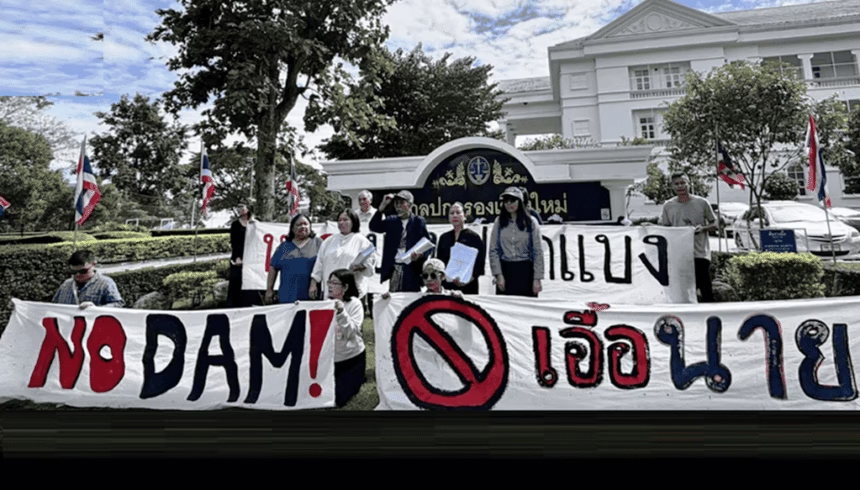CHIANG RAI – On Wednesday, the Rak Chiang Khong community members, scholars, and lawyers from the Community Resource Centre Foundation filed a case at the Chiang Mai Administrative Court over the Pak Beng Dam Hydropower Project.
The suit names four state bodies as defendants: the Prime Minister, the Cabinet, the National Energy Policy Council (NEPC), and the Electricity Generating Authority of Thailand (EGAT).
The dispute centres on the Pak Beng Hydropower Project and the risk that it could turn the Mekong River in Chiang Rai into a pond of toxic sludge. The applicants state that runoff from rare earth, gold, and other upstream mines in neighbouring countries has already loaded tributaries with heavy metals.
The filing reports severe cross-border contamination over the past year in the Kok, Sai, and Ruak river basins in Chiang Rai. Tests found arsenic and lead in surface water and riverbed sediment in the Kok and Sai Rivers at levels above safety standards.
Polluted flows then enter the Ruak and Mekong, raising environmental and public health risks in Thailand and downstream states.
The pollution is linked to mining in Myanmar’s Shan State, where, according to Trans Border News, the plaintiffs operate without proper legal control. As a result, chemically tainted sediments and wastewater move into headwaters and cross into Thailand.

Pak Beng Dam Project Location and Status
Construction of the Pak Beng dam in Oudomxay Province, Lao PDR, is advancing about 97 kilometres upstream from Thailand’s border at Kaeng Pha Dai in Wiang Kaen District, Chiang Rai. The project has an installed capacity of 912 megawatts and a 29-year power purchase agreement with EGAT.
The applicants argue that the project moved ahead without an adequate transboundary impact assessment or cumulative impact assessment. They flag heavy metal pollution as an urgent and unresolved issue that has not been addressed, while risks to communities continue to rise. The suit claims that the responsible agencies failed to act with due care, placing people in the Mekong and its tributaries at ongoing risk to life and property.
According to the plaintiffs, heavy metal contamination in the Kok, Sai, Ruak, and Mekong Rivers originates in mines across the border and is increasing. They say that, once the Pak Beng dam is in place, pollutants carried by the current will settle in the reservoir.
They describe this as a new fact with major implications for cross-border environmental impacts and for the rights of people in Chiang Rai. They also state that the four defendants have duties under the Constitution of the Kingdom of Thailand.

Alleged Failure to Act
The plaintiffs state that the defendants ignored new evidence of transboundary harm linked to the Pak Beng project. In their view, no review of decisions or contracts took place to prevent or reduce damage. They argue that this failure breaches Thailand’s obligations under international law and violates the state’s duty to protect under human rights frameworks that Thailand has endorsed, both internationally and in domestic law.
Five plaintiffs assert that the four defendants have not taken lawful action regarding the Pak Beng Dam hydropower project. While the defendants are not the project owner, the suit argues they have a responsibility to protect natural resources, the environment, and the public interest, and to prevent harm to Thai communities.
The applicants consider this inaction unlawful and contrary to human rights and environmental protection principles under Thai and international law. They say it has caused serious and direct impacts on the plaintiffs, the public, and the natural environment.
Relief Requested from the Court
The lawsuit asks the court to issue the following orders:
- Require EGAT, as the contracting party, and the NEPC, as the approving body, to cancel or revoke the power purchase agreement for the Pak Beng project.
- Revoke the NEPC resolution dated 5 May 2022 to cancel the Pak Beng power purchase scheme.
- Nullify the public information and consultation meetings conducted in June 2025 for the Pak Beng hydropower project.
- Issue measures to regulate private sector projects that affect people and natural resources, with clear respect for human rights, community rights, and environmental protection, and prioritise urgent action on cross-border impacts.
- Order the defendants to carry out their duties under the Constitution and relevant laws to protect natural resources, the environment, communities, and the public from the transboundary impacts of Mekong River projects. This includes remedial action to restore the Mekong along the Thai and Lao border in Chiang Saen, Chiang Khong, and Wiang Kaen Districts, Chiang Rai, to a pollution-free state, and to conduct studies on future health, life, bodily, and property impacts through a public participation process based on sound science.
The filing also notes that the dam site in Oudomxay Province, Lao PDR, is 97 kilometres from the Thai border in Wiang Kaen. The reservoir is expected to raise water levels back to the Thai side in Wiang Kaen and Chiang Khong. Dry-season river beaches used by several riverside communities would be submerged.














